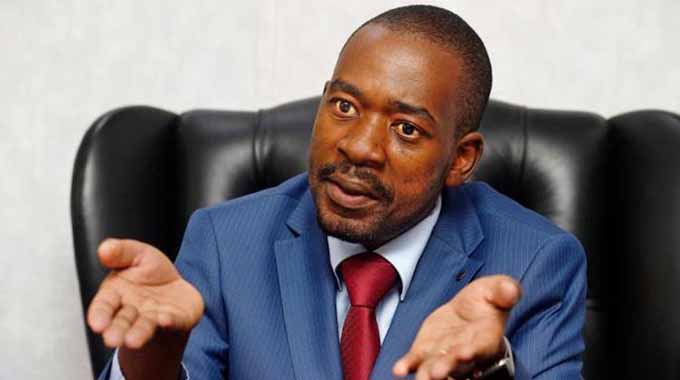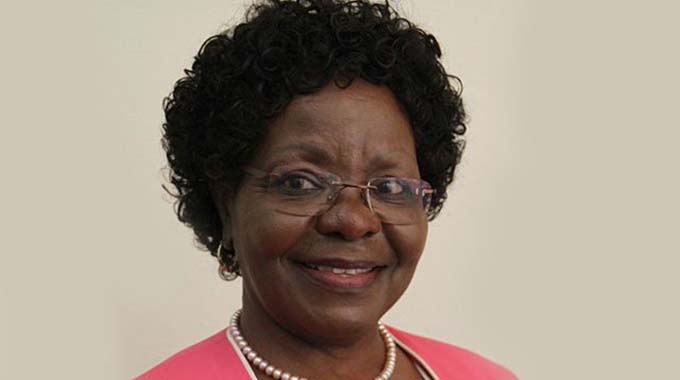Why elections are bad for democracy

Reason Wafawarova on Monday
Brexit was a turning point in the history of Western democracy in general, and that of Britain in particular. A drastic decision was taken through a one round referendum based on a simple majority, and the fate of a country and that of an entire continent was changed by the single swing of a blunt axe, wielded by disenchanted and poorly informed citizens, many of whom had no idea what they were voting for or against.
Elections have become a worrying blow to the health of democracy, and our just-ended elections are no exception — bringing to the country more disunity than unity, dividing the nation instead of uniting it.
On the surface elections always seem fine. World Values Survey sampled 73 000 people from 57 countries to see if they believed that democracy was a good way to govern a country. Nearly 92 percent said yes. However, the same survey found out that more and more people are beginning to prefer a strong leader who “does not have to bother with parliament and elections.” The survey showed that trust in political parties and governments has reached a historical low. It appears people like the idea of democracy, yet they loathe the reality.
The urban population of Zimbabwe just loathes the idea that ZANU-PF is widely voted for by the rural population — a reality of democracy so unpalatable for them to accept.
As we just saw with the relationship between some political activists and the Zimbabwe Electoral Commission (ZEC), trust in institutions of democracy is visibly declining. The EU’s official research found out that from about the year 2012, less than 30 percent of Europeans had faith in their national parliaments and governments. It also shows that 75 percent of people in Europe distrust their countries’ most important political institutions.
We have adopted political democracy from the West, yet like in the West our political parties are among the least trusted institutions in our society. Although a certain scepticism is an essential component of citizenship in a free society, we are justified in asking how widespread this distrust has become; and at what point healthy scepticism tips over into outright aversion.
We face a danger were we will simply distrust all our institutions of democracy, from political parties to ZEC, and even to the Judiciary.
There is something explosive about an era in which interest in politics grows while faith in politics declines. What does it mean for the stability of a country if more and more people warily keep track of the activities of an authority that they increasingly distrust?
How much derision can a system endure, especially now that everyone can share their deeply felt opinions online via social media? These are pertinent questions we ought to ask ourselves.
In the nineties, we lived in a country of greater political apathy and yet we had greater trust in our politics. Now there is insurmountable passion and immeasurable distrust. We live in turbulent times, as the events around Election 2018 demonstrate all too clearly. And yet, for all this turbulence, there has been little reflection on the tools that our democracy uses. It is still a heresy to ask whether elections, in their current form, are a badly outmoded technology for converting the collective will of the people into governments and policies.
We have 49.2 percent of the people disagreeing with 50.8 percent on who should be our next President. This is what elections in their current form can deliver on a bad day for democracy. Yet the same election delivered for us a two-thirds parliamentary majority for ZANU-PF.
We discuss and debate the outcome of an election without discussing its principles. This must be surprising. In an election, we ask people directly what they think about candidates on ballot papers when they have not been obliged to think — much as they have been bombarded by inconceivable manipulation and propaganda in the months leading up to the election.
In an election a vote is cast, but in so doing it is also cast away for the next five years. Elections are an archaic method of delegating one’s future to an elected representative; which was deemed necessary in the Aristotelian times — when communication was slow and information was limited — but it is completely out of touch with how people of today interact.
Even in the 18th century, Jean-Jacques Rousseau had already observed that elections alone were no guarantee of liberty: “The people of England deceive themselves when they fancy they are free; they are so, in fact, only during the election of members of parliament: for, as soon as a new one is elected, they are again in chains, and are nothing.”
Elections are an overrated arcane instrument of public deliberation, and that is why we are failing to reach a consensus with this election — even if one party managed more than two thirds of the seats on offer.
The democratic technology is going wrong in many countries, talking of Brexit, the Trump victory in 2016, the revival of Pauline Hanson’s racist politics in Australia, and so on and so forth.
2018 already risks becoming the worst year for democracy in Zimbabwe since 2008, and this is purely because we have chosen to reduce democracy to mere voting. Nelson Chamisa is now obsessed with the voting process as the beginning and end of the definition of democracy. It is not his fault. He has been brought up and wired that way.
Isn’t it bizarre that voting, our highest civic duty; boils down to an individual action performed in the silence of the voting booth? Is this really the place where we turn individual gut feelings into shared priorities? Is it really where the common good and the long term are best served?
By refusing to change procedures, we have made political turmoil and instability defining features of our democracy.
In May 2016, Spain had to hold a second general election in six months after the first run did not deliver a government, a few years earlier Britain had produced a hung parliament, so did Australia. In May 2016, Austria almost elected its first extreme right-wing president. Belgium went for 541 days failing to form a government.
We in Zimbabwe went from June 2008 to September 2009 without an elected government. Right now we have had to wait for the Supreme Court to determine how we are going to end up with a president and a government after Election 2018.
Like democracies in the West, we are now democratically fatigued. The symptoms are clear; election fever, political paralysis, government impotence, relentless media scrutiny, widespread public distrust, and populist upheavals.
But the democratic fatigue syndrome is not so much caused by the people, the politicians or the parties — it is caused by the procedure. Democracy is not the problem. Voting is the problem. Where is the reasoned voice of the people in all this?
Where do citizens get the chance to obtain the best possible information, engage with each other and decide collectively upon their future? Where do citizens get a chance to shape the fate of their communities? Not in the voting booth, for sure. Certainly not at political rallies either.
The words “election” and “democracy” have become synonymous. We have convinced ourselves that the only way to choose a representative is through the ballot box.
After all, the Universal Declaration of Human Rights of 1948 states as much: “The will of the people shall be the basis of the authority of government; this will shall be expressed in periodic and genuine elections which shall be by universal and equal suffrage and shall be held by secret vote or by equivalent free voting procedures.”
We think elections are democracy and democracy is elections. How remarkable that the UDHR contains such a precise definition of how the will of the people must be expressed. It looks like the people who compiled the declaration back in 1948 agreed to a method as a basic right, as if the procedure was in itself sacred.
It would appear that the fundamental cause of the democratic fatigue syndrome lies in the fact that we have all become electoral fundamentalists, venerating elections, but despising the people who are elected. In Zimbabwe, we even despise the rural voter, together with the majority of the winners of an election we so much venerate.
Electoral fundamentalism is an unshakeable belief in the idea that democracy is inconceivable without elections and elections are a necessary and fundamental precondition when speaking of democracy.
Electoral fundamentalists refuse to regard elections as a means of taking part in democracy, seeing them instead as an end in themselves, as a doctrine with an intrinsic, inalienable value.
This is why we are in this quagmire where one candidate is convinced that democracy is dead in Zimbabwe because he lost an election.
This blind faith in the ballot box as the ultimate base on which popular sovereignty rests can be seen most vividly of all in international diplomacy.
We are being threatened with sanctions and isolation by Western countries because of what Chamisa says happened to him with our ballot papers and other electoral materials.
When western donor countries hope that countries ravaged by conflict — such as Syria, Congo, Iraq or Afghanistan — will become democracies, what they really mean is this: they must hold elections, preferably on the western model, with voting booths, ballot papers and ballot boxes; with parties, campaigns and coalitions; with lists of candidates, polling stations and sealing wax, just like they do in the West. And then they will receive money from the West.
Many Zimbabweans across the divide are now dead afraid that we bungled Election 2018 last minute, and we might fail to receive Western moneybags as a result. How pathetic!
Local democratic and proto-democratic institutions (village meetings, traditional conflict mediation or ancient jurisprudence) stand no chance. In fact, we have accused our own traditional leaders and chiefs of being a threat to democracy. We have gagged them and derided their dignity and honour.
These traditional arrangements may have their value in encouraging a peaceful and collective discussion, but the money will be shut off unless the Western tried-and-tested recipe is adhered to.
This is why our media goes on fire each time a Western ambassador says something about our election. When African diplomats speak on the same election, they are either totally ignored or derided.
If you look at the recommendations of western donors, it is as if democracy is a kind of export product, off the peg, in handy packaging, ready for dispatch. “Free and fair elections” have become an Ikea kit for democracy — to be assembled by the recipient, with or without the help of the instructions enclosed.
When the resulting piece of furniture is lopsided, uncomfortable to sit on, or falls apart; then it’s the fault of the customer.
That elections can have all kinds of outcomes in fragile states, including violence, ethnic tensions, criminality and corruption, seems of very little importance to the West.
The West conveniently forgets that elections do not automatically foster democracy, but may in fact prevent or destroy it, as might be happening in our case in Zimbabwe today.
The West insists that in every country in the world people must traipse off to the polling stations. Western electoral fundamentalism has taken a new form of global evangelism. Elections are the sacraments of that new faith, a ritual regarded as a vital necessity in which the form is more important than the content.
It is odd that in the 3 000 years that people have been experimenting with democracy, it is only in the last 200 years that people have been practising democracy by holding elections. We now regard elections as the only valid method to attain democracy. Elections have now become a force of habit. Agreed, elections have made democracy possible. But they are not democracy in themselves.
Elections are the fossil fuel of politics. Once they gave democracy a huge boost, now they cause colossal problems. If we don’t urgently reconsider the nature of our democratic fuel, a systemic crisis awaits us.
The forbearers of representative democracy had no idea there would be political parties, laws regulating universal franchise, no commercial media, no Internet. All they did was put elections in place to learn “the will of the people” during the American and French revolutions.
If we obstinately hold on to a notion of democracy that reduces its meaning to voting in elections and referendums, at a time of economic malaise, we will always undermine the democratic process, as we indeed have been doing in Zimbabwe — mobilising sanctions against the country in the name of democracy.
After the rise of the political parties, the introduction of universal suffrage, the rise and fall of organised civil society and the dominance of commercial media, another factor has now been added: social media.
At the beginning of the 21st century, citizens could follow the political theatre, minute by minute, on radio, television or the Internet, but today they can respond to it from second to second and mobilise others. The culture of immediate reporting now has instant feedback, resulting in even more of a cacophony.
The work of the public figure, and especially the elected politician, is not made easier by any of this. We have seen how tweets from world leaders have backfired spectacularly.
Leaders can immediately see whether new proposals appeal to the citizen, and indeed just how many people the citizen can whip up. New technology gives people a voice, but the nature of this new political involvement makes the electoral system creak at the joints all the more.
This is what elections are giving us. Collective hysteria that makes election fever permanent, inefficiency caused by electoral calculus, legitimacy crisis under the continual need to distinguish oneself, the long term and the common interest losing out to the short term and party interests. Politically entitled politicians want to be in Cabinet ahead of meritorious and deserving experts.
Instead of making democracy possible, elections are increasingly becoming a hindrance to the people’s collective will.
Zimbabwe we are one and together we will overcome. It is homeland or death!
Reason Wafawarova is a political writer based in SYDNEY, Australia.









Comments